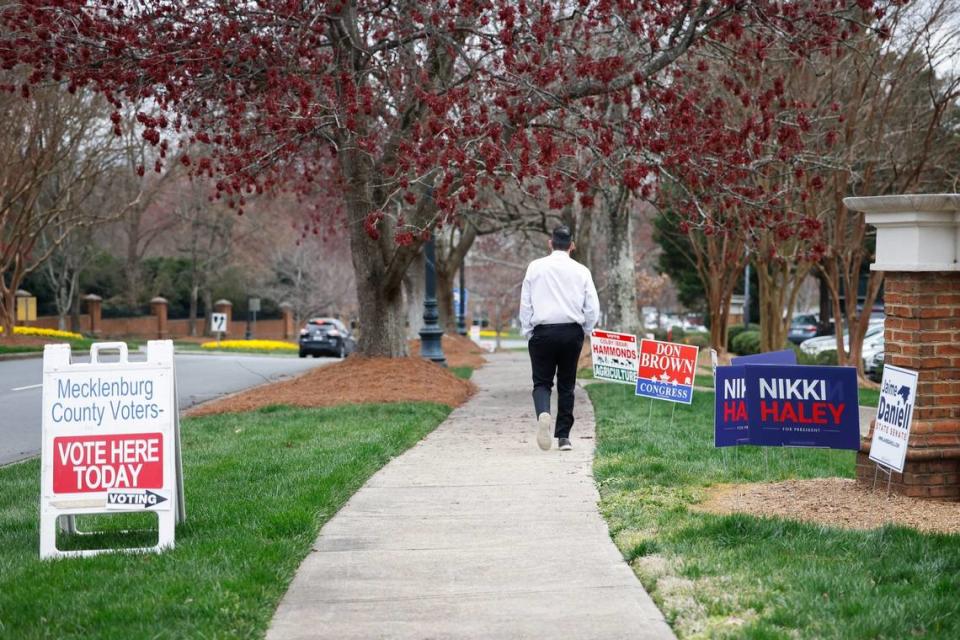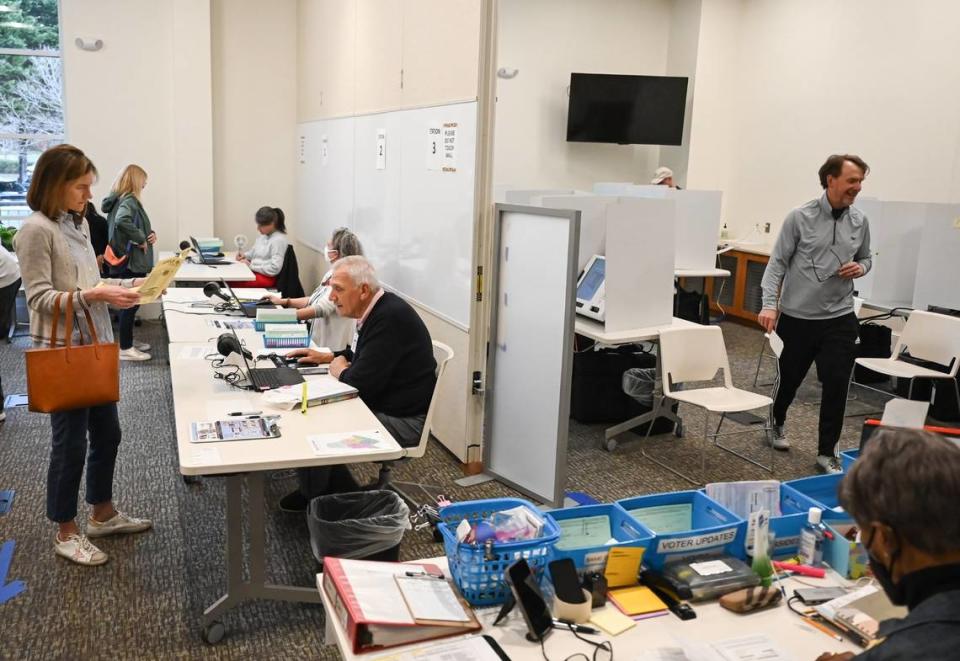NC’s primary election may not be decided on Tuesday. What to know about runoffs.
As you wait to find out which candidates won their primary elections, Tuesday’s results may not be the last word. Some crowded races could end up in a runoff election later.
North Carolina has rules about how many votes are needed to win the contest outright, or if one of the other candidates can call for a second primary.
In order to win a primary race and be guaranteed a spot on the general election ballot, candidates must reach a certain threshold. Here’s what you need to know:
Does the person with the most votes win the primary?
Not necessarily. Candidates in a primary can only be sure they’ve won if they reach a certain threshold set by law to avoid a runoff.
Is it a runoff or a second primary?
It’s both. They are the same thing.
“In North Carolina, we have a system where we could have a second primary, or a runoff, to our primary elections,” State Board of Elections Executive Director Karen Brinson Bell told reporters during a press briefing on Monday.
What’s the threshold for a runoff?
Candidates must win more than 30% of votes in their race to secure their party’s nomination for the general election. That means 30% of the total vote count plus one.
Is a runoff automatic?
No. In North Carolina, a runoff only occurs if the second-place finisher calls for one.
In the 2020 primary election, a Democratic candidate for lieutenant governor, Terry Van Duyn, was the second-place finisher to Yvonne Lewis Holley and met the criteria to call for a runoff, as Holley received 26% of votes to Van Duyn’s 20% in that primary, both below the 30%-plus-one threshold.
But Van Duyn declined for ask for a runoff in that 2020 primary, and Holley went on to the general election as the Democratic nominee, where she lost to Republican Mark Robinson.
Will there be a runoff in North Carolina this year?
There could be. Brinson Bell noted that for prominent elections, there are “a lot of candidates in several of the congressional seats. And we also have a large number of candidates, in particular with the Republican lieutenant governor race.”
“So we will all be watching to see if these candidates are able to cross that threshold of 30% plus one,” she said.
When would NC’s second primary be held?
May 14.
Who gets to be on the runoff ballot?
According to the Board of Elections, if no candidate receives more than 30% of the vote, the second-place candidate may request a second primary. So only the first- and second-place candidates advance to that runoff.
When will we know if there will be a runoff?
After the election, the second-place finisher in a contest that did not meet the 30%-plus-one threshold will need to decide whether to request a runoff.
Then the Board of Elections will post second-primary information here: ncsbe.gov/voting/upcoming-election.
Is North Carolina runoff law the same as other states?
States have different rules for primary runoffs. You can read details about each state on the National Conference of State Legislatures website.
What about recounts?
State law explains how recounts are handled.
“Discretionary” recounts are ordered by the county board or State Board of Elections if necessary in finalizing vote totals, but the county board cannot order a recount if the state board has already denied one.
There are different rules for “mandatory” recounts by a county board or the state board. The threshold for a recount for a non-statewide ballot item is 1%, but for a statewide ballot item, the threshold for a recount is 0.5%, or 10,000 votes, whichever number is less.
Some candidates in past close races have waited to concede races until after every single vote was tallied.


